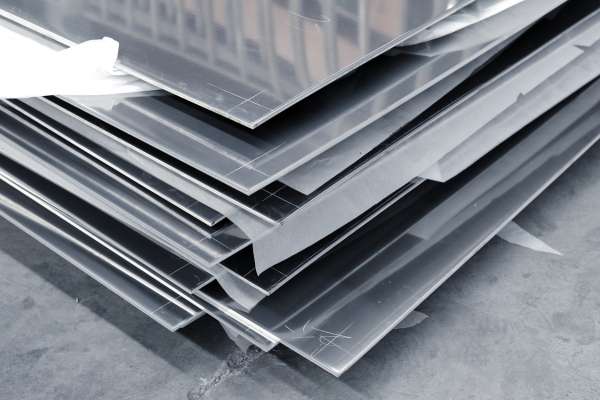

In industries like mining, cement, aggregate processing, pulp and paper, and recycling, screen plates are crucial components for material separation, filtration, and size classification. These high-performance components must endure significant wear and tear, which makes quality, precision, and longevity vital factors to consider during purchase. While it may seem convenient to purchase screen plates from resellers or third-party vendors, buying directly from a trusted supplier can provide a range of benefits that go beyond just cost savings. This blog explores the advantages of sourcing screen plates directly from a reputable manufacturer or supplier and why this decision can lead to better operational efficiency, reliability, and long-term value.
Screen plates are used to control particle size in a wide array of processes. They allow materials of a certain size to pass through while retaining larger particles for further processing. In industries such as mining, screen plates separate ore or gravel. In recycling plants, they sort plastic, metal, or organic waste by size. In the pulp and paper industry, screen plates help remove contaminants from pulp to produce clean and uniform paper products. Given their mission-critical function, their design, strength, and reliability directly impact the quality and efficiency of the end application.
The quality and performance of screen plates are only as good as their design and manufacturing. When you buy from an unknown or unverified seller, you risk receiving low-quality products that may not meet your performance expectations. Conversely, purchasing directly from a trusted supplier ensures the screen plates are manufactured with precise tolerances, high-grade materials, and consistent quality control. The source influences not only the product's performance but also its life span, resistance to corrosion and abrasion, and ability to maintain throughput over time.
Trusted suppliers often use high-grade materials like stainless steel, hardened steel, or wear-resistant alloys to manufacture screen plates. These materials are carefully selected for durability, corrosion resistance, and operational resilience. Buying directly from the manufacturer gives you transparency in material sourcing and the assurance that your screen plates are built to last. Additionally, direct suppliers adhere to strict quality control standards, including inspection, hardness testing, and metallurgical analysis. This commitment to quality minimizes failure rates and improves reliability during heavy-duty operations.
Every industrial application is different. Screen plates may need to vary in thickness, aperture size, slot configuration, perforation shape, and material grade depending on specific use cases. Trusted suppliers often offer customization services that third-party vendors cannot match. Whether you require specialized geometries, laser-cut designs, or reinforced edges, a direct relationship with the manufacturer enables you to communicate your unique requirements and receive bespoke solutions. This tailored approach ensures that your machinery performs at its optimal capacity without the inefficiencies caused by ill-fitting or incompatible components.
Buying from a trusted supplier connects you with knowledgeable engineers and technical support teams. These experts can provide valuable guidance on the selection, installation, and maintenance of your screen plates. They can help you understand which materials or designs are best suited to your application, whether you are dealing with high temperatures, abrasive materials, or corrosive environments. This technical consultation can significantly reduce downtime, increase productivity, and help you avoid costly trial-and-error purchases. Resellers and third-party vendors often lack this depth of product knowledge and service.
Eliminating the middleman reduces markup costs, allowing you to purchase screen plates at more competitive prices. Trusted suppliers can offer volume discounts, promotional pricing, or contract-based deals that are unavailable through resellers. Additionally, you receive transparent pricing with no hidden fees, and you’re less likely to pay premiums for low-quality alternatives. By buying direct, you’re not only investing in better products but also making a cost-effective decision that adds to your bottom line.
Trusted suppliers usually have streamlined production schedules and logistics processes in place to fulfill orders quickly and reliably. Since they control the entire supply chain—from manufacturing to shipping—they are better positioned to meet delivery deadlines and accommodate urgent requests. In contrast, resellers may rely on delayed inventory replenishments or third-party warehousing, increasing the risk of shipment delays or inventory mismatches. Fast turnaround can be a game-changer, especially during plant shutdowns or scheduled maintenance where timing is critical.
Screen plates must often comply with international quality and safety standards such as ISO, ASTM, or industry-specific certifications. Trusted manufacturers build products that meet or exceed these benchmarks. By purchasing directly, you can request documentation such as material test reports, conformity certificates, or quality audits to ensure the product meets regulatory and operational standards. This is particularly important for industries that must pass frequent inspections or operate under strict compliance requirements. Third-party vendors may not always provide such documentation or may sell substandard components that can risk your operations.
Reputable screen plate suppliers often maintain comprehensive product records, including batch numbers, raw material sourcing data, and manufacturing conditions. This traceability is invaluable in case of failure analysis, warranty claims, or future reorders. When you buy direct, you have the ability to trace every detail of your screen plate’s journey—from design to delivery. Additionally, most trusted suppliers offer generous warranties or replacement guarantees, which are often not available when buying through intermediaries.
Many industrial suppliers offer inventory management solutions such as just-in-time delivery, stock agreements, or automated reorder systems. These programs ensure you never run out of critical components and reduce the need for excessive on-site storage. Direct relationships with screen plate manufacturers allow for better coordination in planning, forecasting, and inventory restocking. As a result, you benefit from lower inventory costs and improved workflow continuity.
The screen plate industry continues to evolve with new technologies in metallurgy, perforation methods, and surface coatings. By partnering with a direct supplier, you gain early access to new product releases, innovations, and process improvements. Trusted manufacturers invest in R&D to stay ahead of market needs, and they often share these developments with their customers first. Whether it’s a new anti-clogging design or a more wear-resistant alloy, staying connected with your supplier ensures your operation remains competitive and up to date.
One of the key operational advantages of dealing directly with a screen plate supplier is the simplicity and speed of communication. When you need updates on your order, technical advice, or documentation, you deal with a single point of contact who is directly accountable. This eliminates the confusion and delays that often come from working through intermediaries or third-party sales reps. Strong supplier relationships foster mutual trust, clear expectations, and consistent communication, all of which are critical in high-performance industrial environments.
Let’s consider a real-world example. A mining company was facing frequent downtime due to the rapid wear of screen plates supplied through a local distributor. After switching to a direct supplier specializing in high-strength alloy screen plates, the company saw a 30% increase in screen plate life, reduced replacement frequency, and a 20% cost savings over 12 months. Additionally, direct communication allowed the supplier to custom-design plates that minimized blinding and improved throughput. This strategic shift improved both performance and profitability.
Working with a direct and reputable supplier allows you to assess the ethical and environmental practices of the manufacturer. Many top-tier suppliers follow sustainable sourcing, environmentally responsible production methods, and fair labor practices. This visibility is often lost when buying through multiple layers of distribution. By sourcing directly, your business can align with partners who support your ESG (Environmental, Social, Governance) goals and values.
Establishing a direct relationship with a screen plate supplier can evolve into a strategic partnership that supports your long-term growth. As your operations scale, your supplier can adapt to your changing requirements, offer better contract terms, and invest in joint R&D efforts. These relationships often lead to co-developed solutions, bulk supply arrangements, and exclusive support that you wouldn’t receive through transactional vendor relationships.
Purchasing screen plates directly from a trusted supplier offers a range of operational, financial, and strategic benefits. From product quality and customization to cost savings, innovation, and reliability, the advantages are numerous and impactful. While third-party vendors may provide short-term convenience, they often fall short when it comes to accountability, customization, and product performance. For businesses seeking long-term efficiency, performance, and return on investment, establishing a direct connection with a reliable screen plate supplier is a decision that pays off across every metric.